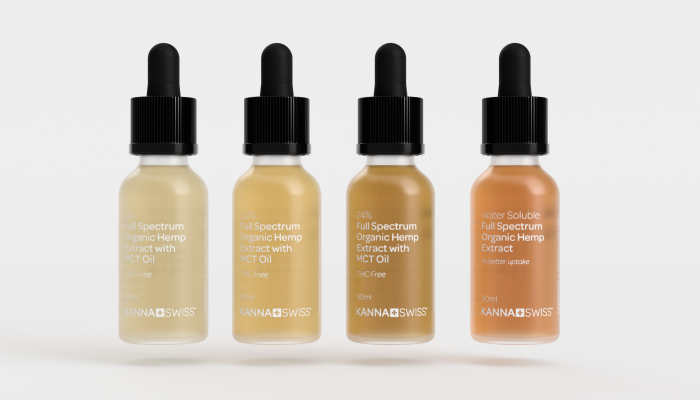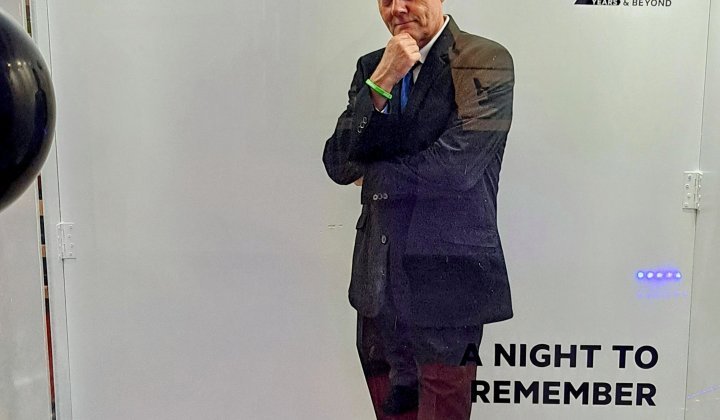Not much happens in the Kingdom of eSwatini (previously known as Swaziland), but one thing you will find, according to local Sibusiso Xaba, is some of the best cannabis in the world.
“Many families have relied on cannabis in the way of economic income for decades,” he says. “So, in many ways, my decision to come back to Africa and to go into the cannabis sector has very much been going back to my roots.”
... our sweet spot is women between the age of 40 and 50...
Xaba is the co-founder and CEO of Africa Cannabis Advisory Group, an investment, advisory, research and distribution company focused on the African cannabis opportunity. Before starting the organisation, he spent eight years as an investment banker in the UK, where his primary focus was on African markets. A significant portion of his specialisation involved working with African governments, corporates, and infrastructure projects, focused on raising capital – everything from US$5 million transactions to billion-dollar deals.
“We all know that Africa has many advantages when it comes to cannabis cultivation,” he says. “We have large amounts of arable land, great microclimates, affordable labour costs, and so forth. However, these advantages in and of themselves aren’t going to draw the required capital to move the needle in the African cannabis story.”
High stakes
Why is this? Firstly, South America has many of the comparable advantages that Africa has except it’s much closer to North America (geographically and in terms of stronger trade relationships) so it’s a much easier place for North American cannabis capital to find a home. Secondly, the sell-off in cannabis stocks in 2019 changed the psychology of the cannabis investor.
“Cannabis investors are a lot more focused on fundamentals,” he says. “They’re a lot more focused on the route to market and on the regulatory environment under which cannabis companies operate. We’ve seen in Canada how that’s hampering growth and development of the sector in the way of distribution via retail outlets and so all of this will be under a lot more scrutiny. That’s why the stakes are a lot higher for Africa to get this right.”
Still, Xaba believes that Africa has done exceptionally well over the last 10 to 15 years in going from a continent dependent on foreign aid to one that has six of the top 10 fastest growing economies in the world. However, much of this growth hasn’t been inclusive. The big challenge for Africa will be lifting millions of people out of poverty and bringing them into the real economy. The cannabis market, he believes, gives a real and tangible opportunity to do that.
“It’s going to take effort from everyone,” he says. “On the Africa side, especially in the private sector, it’s currently an uphill battle. I have many “therapy sessions” with some of our clients about what it would take to succeed in the sector. But I think that with our concerted efforts and focus, we’ll galvanise African political leaders to set the frameworks required for this industry to succeed.”
Africa has many advantages when it comes to cannabis cultivation...
Leaders in the field
Part of that success will involve learning from other players worldwide. One of the leaders in the field is KannaSwiss, a vertically integrated extraction company based in Switzerland. (It’s been said that one of the reasons Swaziland changed its name was to avoid confusion with this other landlocked mountainous nation.)
“We take care of everything from seed to shelf,” says Boris Blatnik, president of KannaSwiss. “We produce our seeds, grow the plant, harvest, and then extract. We sell bulk material to third parties so that they can make their own products, but we also have our own branded product range. And we’re happy to say that we’re one of the few companies that have been profitable since day one.”
Still, there have been many changes in the industry since the company was founded in 2014. Back then, the general population was not versed around cannabinoids (CBD). Instead, it was mainly patients using medicinal marijuana to help with their ailments. There were also only a handful of companies that people relied on and trusted. Fast forward to the present and there are well over 2,000 CBD brands, all trying to differentiate themselves from others, even though not all of them are doing a good job.
“It seems like everybody and their mother wants to get involved in the CBD industry, thinking they can make a quick buck,” Blatnik says. “But they soon realise it’s not as easy as they thought. And so, companies are coming out with products that don’t have testing behind them. They make statements and claims that the products can help with or cure Parkinson’s disease or cancer. These are things that you cannot do because the science is still being worked on. But I think there will be another wave of interest in CBD once these clinical trials come out to the public view.”
Smoking your socks
It’s also been challenging how some companies are putting things on the market that don’t even have CBD in them. The press picks up on this quickly and CBD companies worldwide are deemed as untrustworthy. To counter this fizzling in consumer confidence, Blatnik believes that companies need to be more responsible in their assertions (“don’t call it a miracle anti-aging cream that will make you look 20 years younger just because it has CBD”) but also by being smarter.
We’re still stigmatised.
“Obviously, I’d have to agree that design has to be at the forefront of the product ranges that you’re delivering,” Blatnik says. “But something that hasn’t been spoken about is the fact that people aren’t using the data that’s out there and available to help come up with products that are going to be wanted. If you don’t understand your demographics, you’re probably going to fail.”
Different age groups like different things. For example, the younger market prefers quicker onset solutions with delivery methods like vaping, while older consumers opt for more traditional tinctures (a medicine made by dissolving a drug in alcohol). So, anyone who tries to sell vape pens to senior citizens is clearly smoking their socks.
“The younger generations typically want to take CBD for anxiety and stress while the elderly are taking CBD for aches and pains,” Blatnik says. “But if you look at the data, we know that our sweet spot is women between the age of 40 and 50. They’re typically more affluent and have a higher capacity to buy products that are expensive. They’re also going through different changes in their body and want to stay healthy and in balance. Therefore, we’re always focusing on this age category.”
A gateway to sub-Saharan Africa
While global attitudes towards marijuana are shifting, Blatnik believes that there are some areas in the world that it just doesn’t make sense to come out with a CBD product or brand. This might be because of high income but conservative laws (e.g. Singapore) or accepting laws but low income (e.g. Uruguay). But he’s seen a good uptick in South Africa. After coming to the country for the last several months, he sees it as a big opportunity to invest in as well as a gateway to the rest of sub-Saharan Africa.
“For this space to move forward, we need to collaborate more,” he says. “We’re still stigmatised. And in order for us to get credibility, we as brands need to align ourselves with companies that have a track record. If you’re able to do some sort of joint venture, whether it’s within your space or not, this only adds value and credibility to the market. Also, if you’re talking to regulators, it makes more sense to get a group together. If every company lives in their own little bubble, the regulator has 20 different companies to ignore, but if it’s a united voice, then it makes sense for the regulator to listen.”
What must Africa do to attract capital to unlock the cannabis sector’s potential? Xaba shares some ways for the continent to succeed.
1. Create bold and smart policies. Many countries have a great advantage to enter the cannabis market by setting policies and frameworks for the sector to succeed. We have a range of case studies from across the world on what has worked in the way of legalisation, including where some of the challenges and roadblocks are. African countries are in a unique position right now to use all that information locally and set policy that will help them leapfrog the early stage bottlenecks of legalisation. One idea that we’ve been discussing in depth with numerous governments is around having a centralised cannabis front office unit of sorts. This would be responsible for research, collaboration, and external strategic partnerships. It would also be responsible for working with the various government ministries to assist them in drafting smart policy for the sector.
2. Promote intra-Africa trade and integration. According to the Brookings Institute, only 20% of African exports are to Africa. This number is around 60% in Asia and 70% in Europe. So, it’s clear that Africa is punching well below its weight when it comes to unlocking its own economic value. One really encouraging development in this area is the African Continental Free Trade Area, which came into force in May 2019. This will create the world’s single largest market, with 1.2 billion consumers and US$2.3 trillion value from 55 countries, all under one single economic trading zone. This makes Africa a great market to target in the way of selling and developing products.
3. Create community conscious business models. Over the last 10 to 20 years, the world has gone through an evolution in how companies are run and managed and what defines success. We’ve seen global inequality cause massive protests and unrest throughout the world, including protectionist policies as a means to push back on some of the consequences of inequality. And so the businesses of the future, especially in Africa, are the ones that are going to have community buy-in and have the community in which they operate be fully invested in that business. There are many examples of how this can work, from equity participation at a community level to benefits such as healthcare, education, and the like.
4. Use cannabis to solve African problems. When we speak to entrepreneurs, the typical business model that we see is the dream of being able to export oils to Europe. We hear little interest to target the domestic economy on the industrial hemp side or on the medical side. The African Development Bank and its partners are looking to invest R24 billion into the agricultural sector in Africa. Our view is that a portion of that is expected to go towards the hemp sector. The entrepreneurs that are positioning for that trade will do well focusing on the domestic economy.
5. Find a home for the black market. Cannabis cultivation is ingrained in the social fabric of many African communities. There are millions of Africans who have depended on this crop for sustenance. Finding ways in which the black market can integrate into the legal market is of utmost importance. The benefits are not only economic for those communities and villages, but you also have a situation where individuals come into the formal economy by having IDs, access to banking, credit, and the like. And further down the line, the recreational market in the way of branded products and tourism will be another means of inclusive growth and development.








